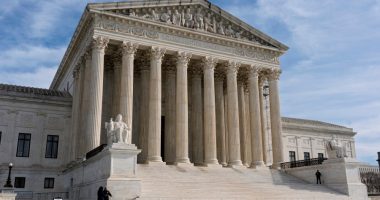Share this @internewscast.com

Xcel Energy facilities “appear to have been involved in an ignition” of a giant wildfire that blazed across the Texas Panhandle last month, the company said in a statement Thursday.
The cause of the Smokehouse Creek fire — the biggest in state history, burning well over 1 million acres — is still under investigation by Texas officials, but the utility company said it is also conducting its own review.
The company did not provide additional details on how it came to the determination, but said it was based on “currently available information.”
“Xcel Energy disputes claims that it acted negligently in maintaining and operating its infrastructure; however, we encourage people who had property destroyed by or livestock lost in the Smokehouse Creek fire to submit a claim to Xcel Energy through our claims process,” the statement said.
Claims filed to the company will be handled expeditiously, prioritizing those who lost their homes in the fire, the company said.
Texas A&M Forest Service say last week’s Smokehouse Creek fire was the largest blaze in state history, burning more than 1,059,570 acres. Two people were killed in the blaze and authorities estimated roughly 500 structures were destroyed as a result.
Utility companies in recent years have been accused of sparking major wildfires in both Hawaii and California. Last year, residents filed a lawsuit against Hawaiian Electric for years of negligence and failing to shut down its power system before harsh winds hit Maui.
Hawaiian Electric acknowledged a down power line started a fire, according to The Associated Press, but blamed firefighters for leaving the scene and declaring it contained before a second wildfire broke out and spread to the city of Lahaina, killing at least 115 people.
California’s Pacific Gas and Electric Co. agreed to pay $13.5 billion in damages to wildfire victims in 2019, after residents filed suits against the company in connection to four fatal fires across three years. The fires covered by the settlement included the 2015 Butte fire, the 2016 Ghost Ship fire, the 2017 Tubbs fire and the 2018 Camp fire.















